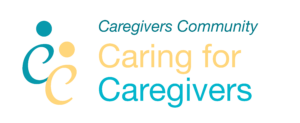** Edited by
Baha and Margaret Habashy
The Challenge
How do you tackle communication hurdles in caregiving?
Navigating communication challenges in caregiving is no easy feat. Caregivers must master effective communication with care recipients and healthcare providers. Developing strong communication skills is crucial for discussing care plans, understanding the care recipient’s needs, and smoothly navigating medical conversations. It’s a vital aspect of the caregiving journey.
Meet Sam
At 69-year-old Sam retired from his engineering career to embark on a challenging journey as the primary caregiver for his spirited 91-year-old mother, Margaret. Every day was a delicate dance, a struggle that unfolded in the language of love and caregiving.
Sam found himself in a world where effective communication was a lifeline. Navigating medical jargon became a daily puzzle, but he refused to let it drown him. With wrinkled hands holding onto resilience, he embraced the art of understanding Margaret’s unspoken needs. Theirs was a conversation of glances, nods, and the silent eloquence of shared history.
Care plans were not just documents; they were blueprints of devotion. Sam tirelessly deciphered them, ensuring every nuance was a reflection of Margaret’s well-being. He became a maestro orchestrating the symphony of care, a tender melody echoing through the halls of their home.
In the face of uncertainty, Sam’s love was the constant. Through medical discussions and emotional rollercoasters, he remained the anchor. Their journey was woven with threads of laughter, tears, and the unspoken poetry of familial bonds. Sam was not just a caregiver; with love he was a guardian of a cherished legacy.
BIBLICAL INSIGHTS
James 1:5 “If any of you lacks wisdom, you should ask God, who gives generously to all without finding fault, and it will be given to you.”
Caregivers often face complex decisions and challenges in understanding and addressing the needs of their loved ones. This verse encourages them to seek divine wisdom, assuring that God provides guidance generously, aiding them in navigating the complexities of caregiving.
1 Peter 5:7 “Cast all your anxiety on him because he cares for you.”
Caregiving can be emotionally taxing, leading to anxiety and stress. This verse reminds caregivers to unload their burdens onto God, trusting that He cares deeply for them. It offers solace, acknowledging the emotional weight of caregiving and the importance of finding refuge in faith.
Psalm 23:1-4 “The Lord is my shepherd, I lack nothing. He makes me lie down in green pastures, he leads me beside quiet waters, he refreshes my soul. He guides me along the right paths for his name’s sake. Even though I walk through the darkest valley, I will fear no evil, for you are with me; your rod and your staff, they comfort me.”
This psalm captures the essence of God’s caregiving role. It speaks to the Lord’s provision, guidance, and comfort. Caregivers can find assurance in the belief that, just like a shepherd care for his flock, God watches over them and their loved ones, guiding them through challenging times.
Isaiah 40:31 “But those who hope in the Lord will renew their strength. They will soar on wings like eagles; they will run and not grow weary; they will walk and not be faint.”
Caregivers often face physical and emotional exhaustion. This verse encourages them to find hope in their faith, assuring that God can renew their strength. It offers a vision of endurance and resilience, providing comfort in times of weariness.
THOUGHTS AND TIPS
- Effective Communication Workshops: Example: Attend a local workshop or online seminar that focuses on improving communication skills, providing practical tips and scenarios relevant to caregiving.
- Create a Caregiving Plan: Example: Develop a comprehensive care plan outlining daily routines, medical needs, and emergency contacts. Share this plan with healthcare providers and family members for a coordinated approach.
- Utilize Technology for Communication: Example: Set up a shared digital calendar with family members to keep everyone informed about appointments, medication schedules, and other caregiving responsibilities.
- Maintain a Caregiver Journal: Example: Keep a journal to document communication challenges, successful strategies, and observations about the care recipient’s preferences. Use this as a reference for improving future interactions.
- Practice Active Listening: Example: During medical appointments, focus on listening attentively to healthcare professionals, asking questions for clarification, and summarizing key information to ensure understanding.
- Establish Clear Communication Channels: Example: Designate specific times for family meetings or conference calls to discuss caregiving updates and share information, ensuring that everyone is on the same page.
- Utilize Visual Aids: Example: Create a visual chart or checklist for medication schedules, making it easier for both the caregiver and care recipient to understand and follow.
- Encourage Open Dialogue: Example: Foster an environment where the care recipient feels comfortable expressing needs and concerns, promoting open and honest communication within the caregiving relationship.
- Seek Support Groups: Example: Join a local or online caregiver support group to share experiences, exchange communication tips, and gain insights from others facing similar challenges.
- Incorporate Humor: Example: Infuse humour into daily interactions to lighten the mood, easing tension and creating a positive atmosphere for communication between the caregiver and care recipient.
- Practice Patience: Example: When faced with communication difficulties, take a deep breath, remain calm, and give the care recipient the needed time to express thoughts without feeling rushed.
- Use Simple Language: Example: Break down complex information into simpler terms, especially when discussing medical matters, ensuring better understanding for both the caregiver and care recipient.
- Encourage Two-Way Communication: Example: Ask open-ended questions that encourage the care recipient to share thoughts and feelings, fostering a more engaging and meaningful dialogue.
- Celebrate Achievements: Example: Acknowledge and celebrate small milestones in the caregiving journey, reinforcing positive communication and creating a sense of accomplishment.
- Establish Routine Check-ins: Example: Regularly check in with the care recipient to discuss any changes in needs, preferences, or concerns, promoting ongoing communication and adaptability.
- Educate Yourself: Example: Attend educational seminars or read literature on the specific health conditions affecting the care recipient, enhancing the caregiver’s knowledge and communication effectiveness.
- Role Reversal Activities: Example: Engage in activities that simulate the challenges faced by the care recipient, fostering empathy and understanding, which can improve communication between the caregiver and care recipient.
- Set Realistic Expectations: Example: Understand that effective communication is a continuous process. Set achievable goals for improvement, recognizing that some days may be more challenging than others.
- Self-Care for the Caregiver: Example: Prioritize self-care to maintain mental and emotional well-being. A rested and rejuvenated caregiver is better equipped to communicate effectively and handle the challenges of caregiving.
At our Community Forum you post your prayer requests, gain spiritual guidance, seek emotional support, and get answers to your caregiving questions. Moderated by qualified Christians, pastors, and healthcare professionals, it is our gift to serve you.
** Note: This blog content was developed with help from ChatGPT 3.5. The story, names and images are for illustration only.






Leave a Reply
Want to join the discussion?Feel free to contribute!